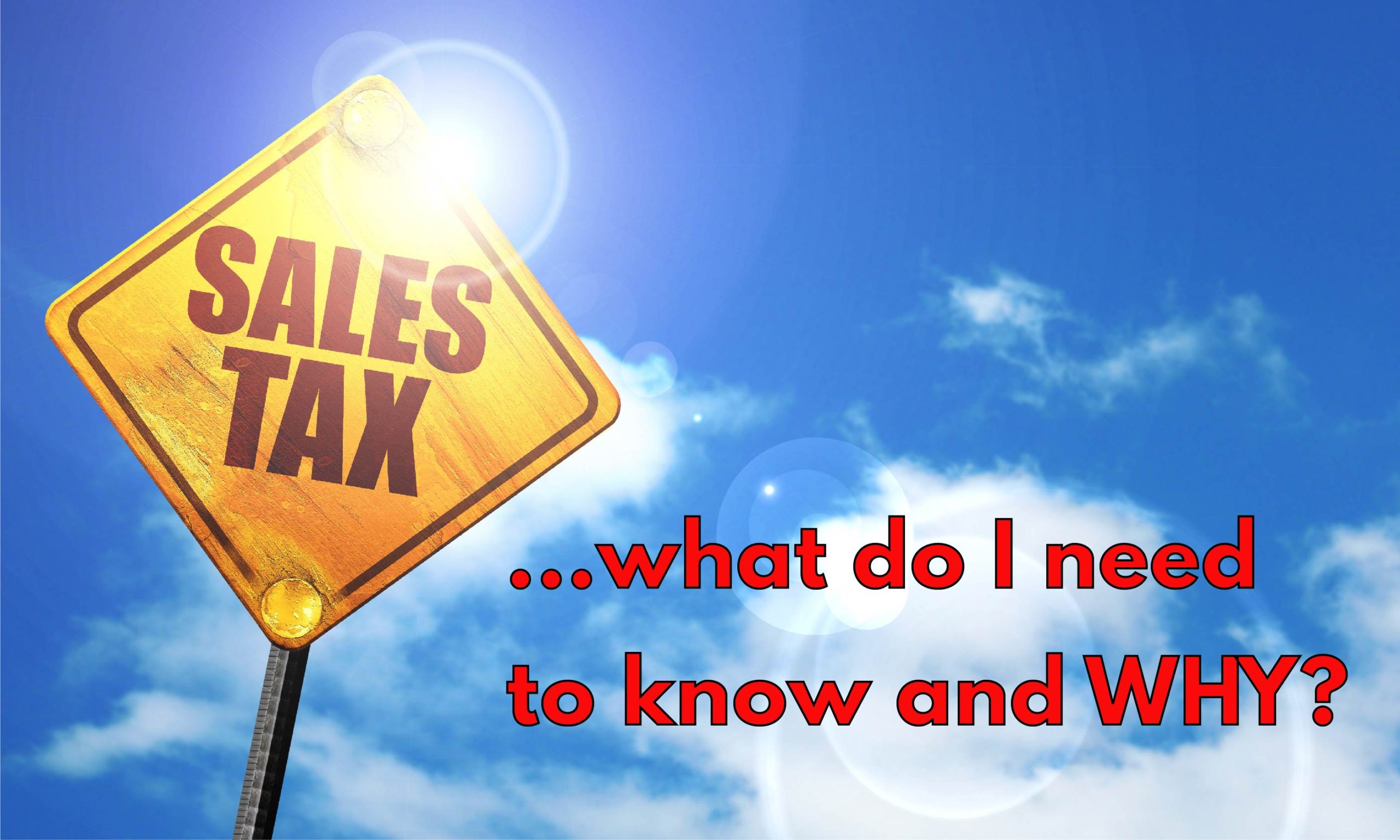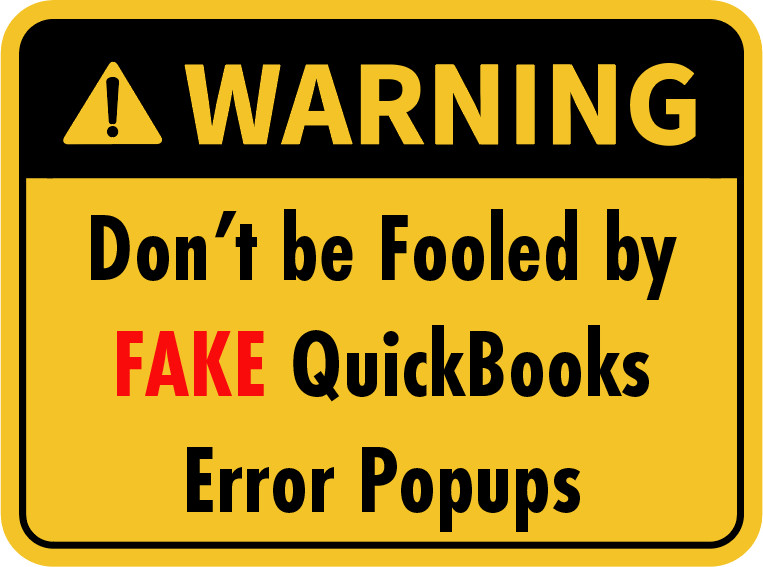We have received numerous calls from QuickBooks desktop clients alarmed at the following "Warning" popup on…

Sales Tax…what do I need to know and WHY?
Sales Tax, it is something that we all partake in but most people give it very little thought, but if you are a business owner the rules changed with the Wayfair decision in 2018.
In sales tax we always knew about “nexus,” basically if I have an office or a salesperson in a particular state then I have set up nexus. Now with the popularity of online sales, it opened up the doors for what is called “Economic Nexus.” Even if you have never set foot into a state, but the goods or your services are sold to or shipped to a state, you have set up economic nexus.
Let’s talk a bit about what the Wayfair decision was and why it probably affects you, and you might not even know it. In the court case, the state of South Dakota said that they were missing sales tax revenue on goods/services that were sold in their state even though the seller did not have a physical presence. The parameters that determine economic nexus became of paramount importance and can be very complex and confusing. Furthermore, since the court case, all of the other states have had to decide how it will affect their state so the rules are evolving and changing frequently. What you knew about sales tax yesterday is not necessarily true today.
Since the Wayfair ruling, more than 40 states have enacted economic nexus laws.
So as a business owner, how do I keep up with all of the law changes????
We recommend that businesses that collect sales tax or are not sure if they need to collect sales tax implement a solution using the Avalara platform. Information given in this article should not be taken as tax or legal advice. If you have questions or concerns about compliance, you should contact a qualified legal, tax, or accounting professional.
Let’s learn a bit more about the Sales Tax Nexus Basics
Determining if your business must collect sales tax when doing business in states other than the one where they are physically located is complicated. Each state writes its own laws that businesses must follow with regard to whether they are required to collect these taxes. Some states not only require the collection of state tax, but collection for local jurisdictions and special districts as well. The first thing a business must determine is whether they have nexus in a particular state.
- Physical Nexus – This is pretty easy to determine; physical nexus occurs when a business has a physical presence in a given state. This could be having an office, store, or other location; having an employee, salesperson, etc. in a state; or having a warehouse or storage facility in a state.
- Economic Nexus –This occurs when a business reaches a specified sales or revenue threshold; each state is different and sets it for itself. Each state has written laws that define economic nexus. When a seller reaches economic nexus they must then apply to collect sales tax in the state, then collect and pay sales tax in that state according to the laws of that state.
Once it has been determined the economic nexus exists, the business must know if they have met additional conditions that determine when they must begin paying state sales taxes.
- Threshold – This is the dollar amount or number of transactions that trigger the requirement for a business to begin collecting sales tax. Some sales use either a dollar amount or a number of transactions; some states use both.
- Sales/Transactions – All states include goods sold when calculating this value, whether number of transactions or dollar value of sales. In some states, nexus is triggered ONLY by the dollar value of sales. Other states require a trigger from BOTH dollar value of sales and number of transactions.
- Retail Sales/Services – Most states collect sales tax on both retail sales and services delivered into that state once nexus has been established. However, there 11 states that do not include services when determining the dollar amount or number of transactions.
- States With No Sales Tax – There are actually five states that do not charge sales tax. These include Alaska, Delaware, Montana, New Hampshire, and Oregon. Of special note is the state of Alaska. While they do not impose a statewide sales tax, they do allow home rule for local sales tax; some cities enforce economic nexus for local sales tax.
- Home Rule – This refers to cities, counties, or other local governments that have the authority to administer and establish their own sales tax rates and rules. As one might imagine, this arrangement, having possibly hundreds of different rates in a single state, could become a nightmare for the person having to collect and remit taxes in a particular state.
Some of the states have banded together to create rules that simplify the collection and payment of sales taxes due from remote sellers.
- Simplified Sellers Use Tax Program (SST) – Some states have begun to enact legislation that will help simplify tax collection and remittance. Alabama has a law in place that lets remote sellers pay a flat 8 percent tax on sales once economic nexus has been established. Additional states are expected to enact similar legislation in the coming years. Additionally, states such as Arizona, have amended tax laws so that remote sellers can remit taxes to a central collecting agency, rather than pay them to individual home rule jurisdictions. Louisiana has done this as well and others are expected to follow.
- Streamlined Sales and Use Tax Agreement – Given that once nexus has been established in a state, the seller has to pay state and local (home rule) taxes on purchases made in that state. Several years ago, a number of states created the agreement to simplify state sales tax collection. The agreement includes common sales tax-related definitions and rules, along with simplified rate structures, as a way to reduce the burden on small remote sellers. There are currently 23 states that are members of the agreement.
There are advantages to having the SST for filing and remitting sales tax, if you would like to find out more, please contact VARC Solutions to find out how we can assist you with determining how sales tax software from Avalara can help you keep your business compliant with sales tax laws across the United States
VARC Solutions is a nationally recognized QuickBooks consultancy located in the Houston, TX area. With over 20 years of experience, we are uniquely qualified to assist small and medium-sized businesses with determining which accounting and tax software solutions are the best fit.


